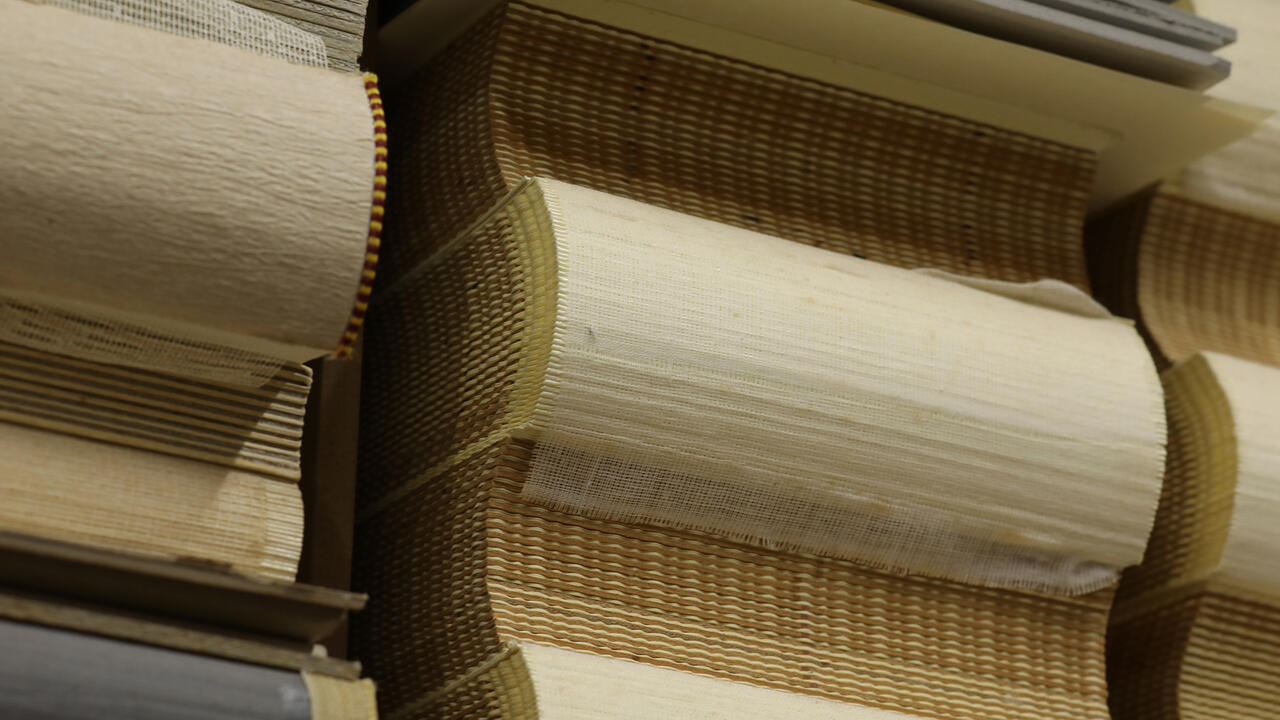Kai Althoff Dossier: Nicolaus Schafhausen
Nicolaus Schafhausen on Germany, origins and individualism as utopia in the work of Kai Althoff
Nicolaus Schafhausen on Germany, origins and individualism as utopia in the work of Kai Althoff

‘I didn’t want the liberty but I can’t get rid of it. I try and I have tried, one way and the other.’1
Kai Althoff’s longing for an Arcadian ideal world – a world one knows has never existed and never will – is something that has accompanied me with a passion since the early 1990s. The direct physicality of each of his works provides an ideal surface for projections of one’s own fragility. It positively demands identification.

Raised in the Rhineland of the 1970s and 80s, socialized with the typical anti-authoritarian ideals of West German parents of the time, abhorring all forms of rules and discipline, Althoff developed an autonomous visual idiom that cannot be assigned to any genre or preexisting formal language. Rather than illustrating the utopia of an idealized and heroic future, his work always grants a central position to the figure of the artist. The result is a highly personal form of art making.
Althoff’s work also often deals with being defined by cultural origins and the dilemma of national identity in Germany. In this context, ‘origins’ are synonymous with home (Heimat). If it were true that our identity is inevitably linked to a nation, then what place can individualism occupy in our society? If individualism is viewed accordingly as a utopian, almost idealistic point of departure, then origins and belonging could also be conceived of outside the framework of normative societies. Individualism addresses personal desires, standing for ideals one would like to attain and actually feel. This really is a utopia – and an extremely autonomous one at that.
In 2014, while interviewing Althoff, I asked him about the significance of his German origins and whether this is linked with a certain longing where his work is concerned. At the time, Althoff’s upcoming MoMA exhibition was already being planned. However different the (West) German artists given solo shows by MoMA in recent years may be (Rosemarie Trockel, Martin Kippenberger, Isa Genzken, Sigmar Polke and now Althoff) they have one thing in common: they cannot be positioned within any linear development of German art since 1945. In this light, I was very much interested in what might be ‘German’ about Althoff’s work. His answer: ‘Well I think that a lot of what I’ve done and still do affects a German quite differently than the way it would a person with a completely different national identity. And that was certainly very important to me. But then there were also things where it wasn’t of the slightest importance, ones that are conveyed or meant universally. Universal understanding is so basic, though … And the more undecided the reactions the better. When it really tears you apart in a slightly irritating way, like a rash which you have to look after all your life because it has become chronic. And always needs tending to. It actually becomes a stable point in an unstable world.’

Many museums in the USA tend to idealize things related in any way to Germany’s culture of memory – even if they know that in terms of today’s reality, this specific German culture of memory is at best a marketing cliché. Althoff displayed an awareness of this in our interview: ‘I don’t ask anyone to remember anything, and I remember less and less. The whole of civilization is based on an eternal you must and you shall remember the one lot of old regulations and information, and on forgetting the other old regulations and information. The process of what should be remembered and inwardly digested, and what should better be forgotten, is driven by a subtle motor that has its own inner momentum, and which ultimately feeds off of people’s lower emotional instincts and is incredibly difficult to become aware of.’
Often, being assigned to a national background only reinforces the dichotomy between self and other. In this way, it obscures the view of what is beyond the normative, of figures of desire that allow an elsewhere: an elsewhere that is nonetheless (or all the more) capable of offering an understanding of the present. Althoff is always devising new life models that treat his self-image like a still life. Not just pictures, but entire identities. One should not be deceived; he is constantly leading us up new paths: ‘I often want to be someone else. Very often in fact.’
Translated by Nicholas Grindell,
1 All quotes from: http://moussemagazine.it/articolo.mm?id=1092
























